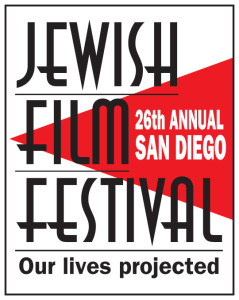The Singing Abortionist directed by Dana Bratt; Canada; © 2014; 60 minutes; English; Documentary. To be shown during the San Diego Jewish Film Festival at 2 p.m., Sunday, Feb. 7 at Edward San Marcos Stadium 18, 1180 W. San Marcos Blvd., San Marcos, and at 2 p.m., Tuesday, Feb. 9, at the Reading Cinemas 14, 4665 Clairemont Drive, San Diego.
By Donald H. Harrison

 SAN DIEGO—In both this film and in The Law, previously reviewed, (click here to see that review), the topic is abortion; the protagonist is a Jewish survivor of Auschwitz; and the pro-life attacks against the protagonist liken abortion to Nazi genocide.
SAN DIEGO—In both this film and in The Law, previously reviewed, (click here to see that review), the topic is abortion; the protagonist is a Jewish survivor of Auschwitz; and the pro-life attacks against the protagonist liken abortion to Nazi genocide.
If you have to choose only one of these two films, I’d recommend The Law as a far more compelling exposition of the abortion controversy. While The Singing Abortionist has some merits, it is choppier in its presentation and seems to keep going over the same ground. “Singing” in the title seems to be for shock value; Dr. Henry Morgentaler says at one point he has sung during abortion procedures, but that is the last we hear about it until the credits are rolling. Then he is singing along with someone else in an entirely different setting.
Morgentaler openly defied Canada’s anti-abortion laws, but juries refused to convict him – in essence nullifying the law. At one point an appeals court reversed abortionist Morgentaler’s acquittal by a jury, embroiling Canada in a second controversy, over whether such an action by a higher court is proper.
Ultimately Morgentaler—described as being simultaneously Canada’s most hated and most loved man–won in the Canadian Supreme Court, resulting in abortions becoming legal throughout Canada. But his long campaign for a woman’s right to choose came at quite a cost. He spent time in prison. He received death threats and one of his clinics was blown up. He and his first wife, the Yiddish writer Chava Rosenfarb, had a troublesome marriage, which ended after he committed adultery. Their daughter, Goldie, became estranged from him, but other relatives, including a son Abraham, maintained a relationship and are interviewed extensively in the film.
Morgentaler had two other sons, Yann and Benny, by other women. Their interviews are also interspersed through the documentary.
Because he was such a public figure, there were many video clips of Morgentaler being interviewed, or in the middle of angry protesters. Asked why he was willing to commit thousands of abortions, even though they were against the law, he said that if someone were drowning, and you could save that person by extending your arm – but the law forbade you from extending your arm – wouldn’t you do it anyway?
Morgentaler’s life was in some ways a repudiation of Nazi rank and file who obeyed orders unquestioningly, notwithstanding their clear immorality.
As a matter of coincidence, later this year, at 5 p.m., Wednesday, May 4, the late Morgentaler’s daughter, Goldie, who is a professor of literature at the University of Lethbridge in Alberta, will be a featured speaker at the UCSD Living History Holocaust Workshop. She’ll be there to talk about the work of her mother.
An announcement about the event from UCSD reads:
“Chava Rosenfarb was one of the great Yiddish writers of the second half of the 20th century. Burn in 1923 in the Polish city of Lodz, she began writing poetry in the ghetto. After barely surviving Auschwitz, she was homeless and stateless for several years before immigrating to Canada. She was married to the abortion rights activist and physician Heniek (Henry) Morgentaler. Rosenfarb’s work and life will be introduced by her daughter Goldie Morgentaler, a literature professor at the University of Lethbridge and the translator of her mother’s works into English.”
*
Harrison is editor of San Diego Jewish World. He may be contacted via donald.harrison@sdjewishworld.com. Comments intended for publication in the space below must be accompanied by the letter writer’s first and last name and by his/ her city and state of residence (city and country for those outside the U.S.)